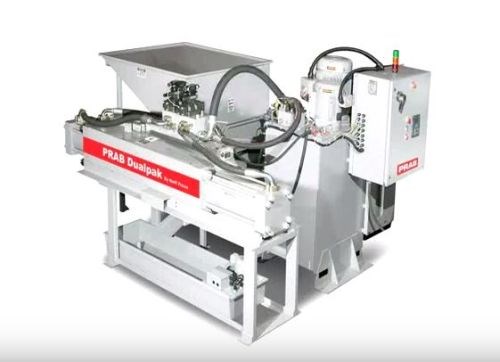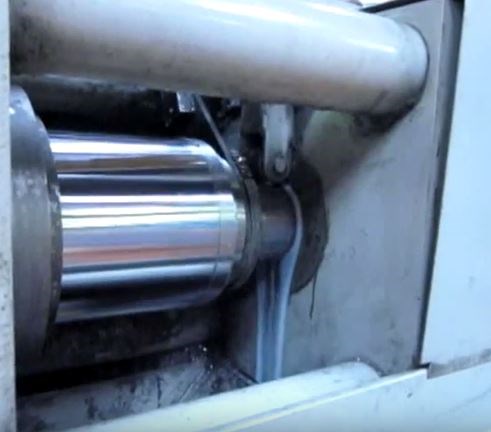Video: A Pressing Issue
If you’re generating wet chips and sending them straight to the recycler, you’re paying to have the extra weight removed. Briquetting helps you recover that expense, as well as your cutting fluids.

Sometimes gravity just isn’t enough. No matter how long you allow chips to drain, a fairly substantial amount of cutting fluid remains, adding weight to the material you’re paying a recycler to remove. One way to address this issue is by briquetting, which compresses chips, turnings and swarf into solid form, at the same time squeezing out coolants and lubricants which results in a briquette that is 99-percent dry.
One such system is the Dualpak briquetter from PRAB. In this design augers feed chips into the briquetting press compression chamber where two opposing hydraulic cylinders press the metal into disc-shaped briquettes that are automatically ejected from the machine, squeezing out the cutting fluid or coolant and creating a compact, up to 99 percent dry, briquette. The fluid can then be filtered and reused, allowing you to maintain a cleaner, more environmentally friendly shop.
Briquettes are easy to remelt and transport, and they can even be stored when recycling prices are low until they rise once again. According to PRAB, the Dualpak briquetter handles an array of machine metals, including aluminum, steel, cast iron, copper, brass, titanium, magnesium and others. Go here for a video of how the system operates. This article describes how an aerospace manufacturer installed another PRAB system, this one using centrifugal force for fluid separation.

Two opposing hydraulic cylinders press the metal within the compression chamber, squeezing out fluid and creating a briquette that is up to 99-percent dry.














.jpg;maxWidth=300;quality=90)
